Once peninsular India’s most respected institution of higher education, BU (estb. 1964) is in a shambles. The university is not ranked among the country’s Top 100 universities in the league table of the Union HRD ministry’s National Institutional Ranking Framework 2017 - Sruthy Susan Ullas
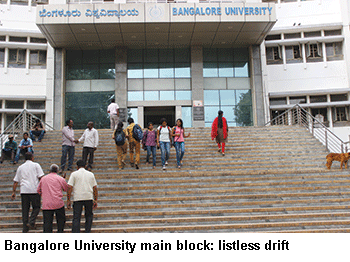 ONCE PENINSULAR INDIA’S MOST respected institution of higher education especially in the sciences and psychology, Bangalore University (BU), established as an independent varsity after separation from the University of Mysore in 1964, is in a shambles.
ONCE PENINSULAR INDIA’S MOST respected institution of higher education especially in the sciences and psychology, Bangalore University (BU), established as an independent varsity after separation from the University of Mysore in 1964, is in a shambles.
On February 8, at its 53rd convocation ceremony when 55,780 students graduated, neither the chancellor nor pro-vice chancellor (state higher education minister, Basavaraj Rayareddi) bothered to show up, a first in BU’s history. Moreover, unprecedentedly 170 undergrad and postgrad gold medallists were awarded cash prizes of Rs.500 and Rs.1,000, instead of customary gold medals because of the 54-year-old varsity’s depleted treasury. Worse, their degree certificates were riddled with spelling and typographical errors prompting many students to protest during the convocation ceremony itself.
Indeed, it’s impossible for a visitor to this university’s sprawling 1,100-acre Jnana Bharati campus, off the perpetually traffic-choked road connecting Bangalore to Mysore, not to be struck by the air of listless hopelessness and drift that is symptomatic of the reduced condition of this institution of higher learning which has undoubtedly lost its lustre since it moved to the PWD-constructed Jnana Bharati campus in 1973.
The long winding public vehicular thoroughfare which cuts through BU’s Jnana Bharati campus is symbolic of the asphyxiating stranglehold of the state government which allocates BU an annual grant which covers 50 percent of its annual expenditure. The public thoroughfare choked with automotive vehicular traffic is arguably unique to BU, and protests of the university’s administration to limit access to the public including anti-social elements, have been unsuccessful, a telling commentary on its lack of autonomy.
Under post-independence India’s complex and overly regulated higher education system, the Central government funds a mere 41 of the country’s 400-plus public universities, with the rest funded by state governments. The remainder of India’s 800 universities are privately promoted ‘deemed-to-be’ universities charging students tuition fees which are many multiples of government universities’ fees. In the pecking order of all league tables compiled by several media publications (including EducationWorld), Central government universities are highest ranked, followed by private universities, with state government institutions gathered at the bottom. Indeed, it’s rare for a state government public university to be highly ranked in any media survey or league table. Bangalore University’s continuous reputational slide and pathetic condition is mainly because it’s a state university abjectly dependent on annual grants of the Karnataka state government dominated by neo-literate rustic politicians, whose prime objective is to pack the faculty with kith and kin with fake degrees and cosmetic formal qualifications from state universities.
With leaders of all political parties which have ruled Karnataka unanimous about freezing tuition fees — which cover barely 10 percent of BU’s annual expenditure against the global norm of 20 percent — to generate additional revenue BU has had to resort to inviting an ever-increasing number of affiliated undergraduate colleges which pay affiliation fees of Rs.1-15 lakh per year, to be clubbed under the BU banner. Particularly for arts, science and commerce colleges in smaller towns and cities of Karnataka, affiliation with BU is a status symbol and guarantee of quality since exams and assessments are conducted by the affiliating varsity, an assurance of higher study or job readiness.
Thus over the past five decades, the number of government and private undergrad colleges affiliated with BU in Karnataka has multiplied to 684 colleges with an aggregate enrollment of 350,000 students. This huge number of affiliated undergrad arts, science, commerce and engineering colleges has transformed the character of BU changing it into an administrative and examinations — rather than a teaching and research — institution in danger of crumbling under its own weight. Consequently in 2015, BU was trifurcated into Bangalore University (255 affiliated colleges), Bangalore Central University (239) and Bangalore North University (224).
However, even as the two new universities carved out of BU are engaged in establishing themselves, despite its A grade rating from the National Assessment and Accreditation Council of India, BU’s reputation has hit an all-time low. In the EducationWorld National University Rankings 2015, the university was ranked a dismal #57 countrywide, while it isn’t ranked among the Top 100 universities league table of the Union HRD ministry’s National Institutional Ranking Framework 2017. Unsurprisingly, it’s difficult to find industry leaders and HR (human resource) managers who have a good opinion about the quality of BU graduates.
Comments Neeti Sharma, an alum of Bombay University and Symbiosis Institute of Management, Pune, and currently senior vice president, TeamLease Ltd, the country’s premier people supply chain company, headquartered in Bangalore: “BU postgraduates from the Jnana Bharati campus score high in technical skills. However, their non-cognitive abilities which include communication and behavioural skills, and understanding of workplaces are appalling. They are absolutely not job-ready. Even though over the years, there has been increasing awareness of the importance of these skills, the university has not done much to equip and prepare students for the job market.”
Former faculty and leaders lament the depths to which this once premier university has plunged, particularly in the new millennium, mainly because of incremental political interference which has whittled away the autonomy 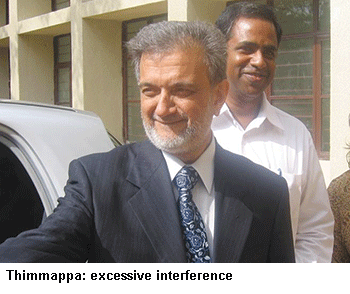 of this 54-year-old university. “BU was a very well respected university of peninsular India until the mid-1970s. Its administration was excellent, with zero tolerance for favouritism, casteism and corruption. The varsity’s department of chemistry was nationally renowned for its original research and the physics and zoology faculties attracted international research funding, while the psychology department was nationally recognised for its quality academic work. Scholars across the country chose BU for their research theses,” recalls Dr. M.S. Thimmappa, a psychology graduate of the National Institute of Mental Health and Neurosciences (NIMHANS), who signed up with BU as a reader in psychology in 1977 and steadily moved up the ranks of the varsity’s faculty to the office of vice chancellor in 2002.
of this 54-year-old university. “BU was a very well respected university of peninsular India until the mid-1970s. Its administration was excellent, with zero tolerance for favouritism, casteism and corruption. The varsity’s department of chemistry was nationally renowned for its original research and the physics and zoology faculties attracted international research funding, while the psychology department was nationally recognised for its quality academic work. Scholars across the country chose BU for their research theses,” recalls Dr. M.S. Thimmappa, a psychology graduate of the National Institute of Mental Health and Neurosciences (NIMHANS), who signed up with BU as a reader in psychology in 1977 and steadily moved up the ranks of the varsity’s faculty to the office of vice chancellor in 2002.
According to Thimmappa, the administrative and academic autonomy of BU was substantially respected until the end of the first decade of the new millennium when government interference became excessive, especially in the appointment of the vice chancellor and six members of the syndicate who together constitute the apex-level governance body of the varsity. In particular during the past two decades, politicisation of the office of vice chancellor has become normative with patently mediocre and undeserving academics from obscure, upcountry universities appointed vice chancellor (aka chief executive) of BU.
Academics in Karnataka trace dilution of the autonomy of BU and the other 28 state government universities to the Karnataka State Universities (KSU) Act, 2000 which introduced several “structural alterations” to its predecessor Act of 1976 to inter alia “tune up the administration”. Under the new legislation, powers of the state government to nominate and appoint the VC and members of the syndicate were vastly expanded. For instance, under s.14 (2), the state is authorised to constitute a four-member search committee (each member nominated by the chancellor, the University Grants Commission, the state government and the syndicate) to submit the names of three academics for the VC’s post to the state government, which is forwarded to the state’s governor (chancellor ex officio), who makes the final decision.
As the governor is a representative of the Centre where the ruling party is often a rival political formation, over the past two decades there’s been differences of opinion between the governor and state government on this issue. This prompted the Congress government of Karnataka to amend the KSU Act in February 2018 under which the governor’s power to appoint the VC has been curtailed. After the amendment, the state government suggests one name to the governor who is obliged to approve it.
Given that BU has an annual budget of Rs.347 crore (2016-17) with the VC and syndicate members endowed with wide powers to recruit faculty and award contracts for expansion and maintenance of its sprawling 1,100-acre campus, ensuring the VC and syndicate members are state government appointees (and represent castes and communities, which are dominant in the legislative assembly and government) has become an issue of prime importance in recent years. “If BU is to be saved, the practice of the state government appointing VCs and syndicate members on the basis of caste and political considerations has to be checked,” says Thimmappa.
As a result of VCs and syndicate members being appointed on extraneous political considerations rather than merit, poison has spread through the varsity dividing faculty, students and non-academic staff on caste, community and political ideology lines. “Every administrative and academic reform we introduced — be it centralised counselling for postgraduate admissions or refurbishing of hostels — was sabotaged by powerful caste and community groups opposed to each other. A deep rooted culture of orthodoxy, mediocrity and favoritism is destroying the university. And the ills of the system are self-perpetuating, as officials chose successors in their own mould,” laments Dr. N. Prabhu Dev, a cardiologist turned academic, who served as BU VC between 2009 and 2012, and is now the vice president of the Forum of Former VCs of Karnataka.
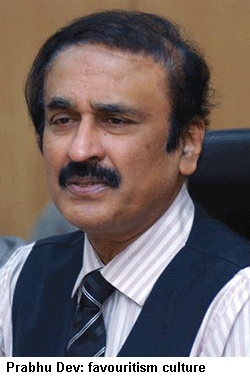 The consequence of a succession of mediocre VCs and syndicate members having been given charge of BU is that they are mainly pre-occupied with mundane administrative matters such as leave applications, transfers, inter-department politics, approvals and permissions, rather than evolving a vision and perspective plan for the university. Moreover, driven by the need to affiliate additional undergrad colleges to augment the varsity’s revenue, BU has morphed into an administrative institution with faculty focused on setting exam papers, evaluating answer papers and issuing certificates to its 350,000 students with teaching, publications and research reduced to the status of subsidiary activities.
The consequence of a succession of mediocre VCs and syndicate members having been given charge of BU is that they are mainly pre-occupied with mundane administrative matters such as leave applications, transfers, inter-department politics, approvals and permissions, rather than evolving a vision and perspective plan for the university. Moreover, driven by the need to affiliate additional undergrad colleges to augment the varsity’s revenue, BU has morphed into an administrative institution with faculty focused on setting exam papers, evaluating answer papers and issuing certificates to its 350,000 students with teaching, publications and research reduced to the status of subsidiary activities.
“The system of universities affiliating hundreds of junior and undergrad colleges survives only in a few countries like India, Pakistan, Bangladesh and Sri Lanka. It’s an anachronism and should be abolished. Instead, Bangalore University should immediately be converted into a unitary university focused on high-quality teaching and research with strong linkages with Bangalore’s high-tech industry. In its current condition, BU is a disgrace to Bangalore, India’s premier IT city,” says Mohandas Pai, an alum of BU and former chief financial officer of Infosys Technologies Ltd and incumbent chairman of Manipal Global Education Services which offers education services to 400,000 students across its six offshore campuses, corporate and online platforms.
The pitiable condition to which BU has been reduced because of lack of autonomy and subjugation to the state government, which for populist considerations has frozen tuition fees for several years, is manifested in the pathetic living conditions of the university’s 13 PWD-constructed hostels which house 2,200 students.
Crammed with bunk beds and clothes drying on makeshift clotheslines in small, stuffy rooms with four inmates, one fan and small windows, there’s no space for residents to move around as rooms are strewn with suitcases as 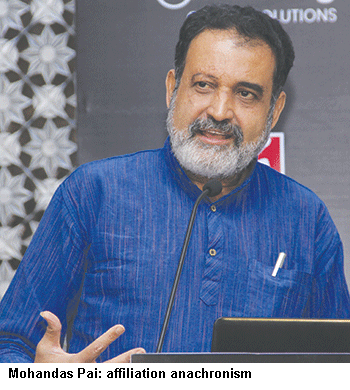 cupboards are insufficient. In every hostel equipped with 20 toilets for 600 students, sanitation is deplorable with a nauseous all-pervading stink. Open, common bathrooms do not provide heated water. Residential accommodation is free-of-charge for SC/ST students and a rock-bottom Rs.1,250 per month for lodging and Rs.820 for food for others. The campus canteen comprises makeshift tea stalls serving a limited variety of breakfast, lunch, tea and aerated drinks, with stone benches and few plastic chairs to sit on. Student unions have been banned since 1989-90, after a spurt of caste-based campus violence.
cupboards are insufficient. In every hostel equipped with 20 toilets for 600 students, sanitation is deplorable with a nauseous all-pervading stink. Open, common bathrooms do not provide heated water. Residential accommodation is free-of-charge for SC/ST students and a rock-bottom Rs.1,250 per month for lodging and Rs.820 for food for others. The campus canteen comprises makeshift tea stalls serving a limited variety of breakfast, lunch, tea and aerated drinks, with stone benches and few plastic chairs to sit on. Student unions have been banned since 1989-90, after a spurt of caste-based campus violence.
Academics attribute continuously declining academic standards and deplorable living conditions to BU’s widely diverse students’ mix. About 20 percent of BU’s total student population is Scheduled Caste, 5 percent from Scheduled Tribes and 41 percent from OBCs (other backward classes).
“Undoubtedly, BU is exemplary for its inclusiveness, access and delivery of social justice. However, with the great majority of students from reserved categories being first generation learners from rural areas, it’s difficult to bring them on board in terms of academics and personality development. We are at a great disadvantage compared to private universities and institutes of professional education which admit only urban middle class students,” says Vinod M.J, dean of the liberal arts and humanities faculty, a senior Fulbright scholar and Salzburg Fellow, and himself an alumnus of Bangalore University.
Yet despite its numerous infirmities rooted in populist government policies defined by conflicting objectives such as academic excellence, reservations and inclusion, rock-bottom tuition fees and faculty recruitment on considerations other than merit, this 54-year-old varsity has a few faculties which are islands of excellence.
“We are very conscious that we constantly need to update syllabuses to ensure that our graduates are employable. Therefore, our curriculum is continuously revised to prepare students not only for industry but for exams of the Union Public Services Commission and Karnataka Public Services Commission,” says Dr. Ashok D. Hanjagi, chairperson of the geography faculty comprising two permanent and two visiting faculty and eight guest lecturers for its 70 students. An alumnus of Karnatak University, Dharwad, Hanjagi signed up with BU in 1996 and has 15 international and 18 national-level publications to his credit.
Another department w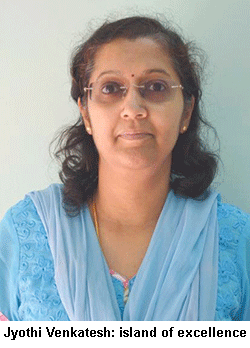 hich has earned a good reputation as an island of excellence is the faculty of global languages which awards degrees, diplomas and four-month certification programmes. “From an informal group which pursued foreign languages as a passion in the 1990s, today our students include corporate executives aspiring to improve their chances to work abroad, engineering students striving to enhance their resumes and others planning higher studies abroad. The ever-growing number of IB, CISCE and CBSE schools has also resulted in a demand for teachers, prompting us to start teaching French and German in affiliated B.Ed colleges,” says Dr. Jyothi Venkatesh, an alumna of Bombay and Bangalore universities and currently assistant professor, department of global languages, which has 250 degree and diploma students on its rolls, mentored by 22 guest faculty.
hich has earned a good reputation as an island of excellence is the faculty of global languages which awards degrees, diplomas and four-month certification programmes. “From an informal group which pursued foreign languages as a passion in the 1990s, today our students include corporate executives aspiring to improve their chances to work abroad, engineering students striving to enhance their resumes and others planning higher studies abroad. The ever-growing number of IB, CISCE and CBSE schools has also resulted in a demand for teachers, prompting us to start teaching French and German in affiliated B.Ed colleges,” says Dr. Jyothi Venkatesh, an alumna of Bombay and Bangalore universities and currently assistant professor, department of global languages, which has 250 degree and diploma students on its rolls, mentored by 22 guest faculty.
Nevertheless within this 54-year-old university, a small minority of insightful academics attribute the steep fall in its reputation during the past two decades in particular to its over-dependence on the state government for funding. The university’s income by way of annual fees paid by affiliated colleges aggregates Rs.15-20 crore, students’ examination fees Rs.50 crore, tuition fees Rs.40 crore and endowments Rs.21 lakh. Against this, the varsity’s annual expenditure is Rs.347 crore. But for the state government paying salaries and wages of the varsity’s 500 faculty and 788 non-teaching staff aggregating Rs.155.92 crore, BU would be bankrupt. And with the state government itself presenting deficit budgets year after year, there has been a faculty recruitment freeze for almost a decade. Currently, BU has a faculty and staff shortage of 41 and 32 percent respectively.
“The state government had put a blanket ban on recruitments in 2007 since it’s unable to increase the salary and wages grant of BU. Therefore, heavy reliance on guest lecturers has adversely affected publication and research activities. However, the government has hinted that it is reviewing its salary grant and we hope to start recruiting additional faculty soon,” says Dr. H.N. Ramesh, who served as the pro tem vice chancellor of BU from August until December 2017. An alumnus of Mysore University, he is a professor of civil engineering at the University Visvesvaraya College of Engineering, Bangalore.
According to G. Ramesh, an alumnus of Madras University and IIM-Ahmedabad and member of the Indian Economic Services, India’s over-regulated higher education model is unsustainable. “India’s public universities are entirely dependent on government funding, and private varsities on tuition fees. Both are unsustainable models. Conversely, government grants apart, all public universities in the US mobilise additional resources by way of commissioned research and consultancy services and raise endowment funding on a continuous basis. Moreover, all American universities charge market fees and provide means-tested scholarships to meritorious students unable to pay full fees. In India, all these basic requireme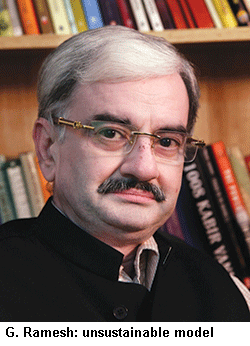 nts are missing. In BU, tuition fees are nominal. Therefore, it is wholly reliant on grants from government, which gives the latter total control over both academic and administrative matters,” says Ramesh, associate professor of the Centre for Public Policy, at the top-ranked IIM-Bangalore, who has co-authored a report (2011) on university finances for the Karnataka Knowledge Commission.
nts are missing. In BU, tuition fees are nominal. Therefore, it is wholly reliant on grants from government, which gives the latter total control over both academic and administrative matters,” says Ramesh, associate professor of the Centre for Public Policy, at the top-ranked IIM-Bangalore, who has co-authored a report (2011) on university finances for the Karnataka Knowledge Commission.
In this connection, it’s pertinent to note that India’s complacent academics — not only in BU but all Central and state government varsities — have never exerted concerted pressure for abolition of universal subsidisation of higher education and switching to a system of means-testing students. Moreover although some IIT and IIM managements have succeeded in supplementing government grants by attracting endowments and creating commissioned research and consultancy income streams, academics in the overwhelming majority of post-independence India’s 39,071 colleges and 800 universities have conspicuously failed and neglected to create additional income streams for institutions which pay them high salaries prescribed by Central government Pay Commissions established every decade to determine the pay and perks of government employees. Lazy, complacent and unaccountable, the great majority of India’s academics in higher education have morphed into government servants.
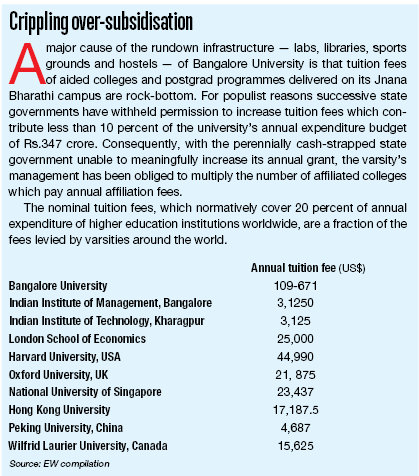
The outcome of the failure of successive administrations of BU to augment its annual income by creating additional revenue streams through commissioned research and consultancy initiatives, soliciting endowment grants from alumni or philanthropists or designing a means tested-tuition fees system, is that the university’s dependence on state government grants and largesse has increased. These acts of omission of faculty have enabled the state government to recklessly appoint vice chancellors chosen on considerations other than merit in all state government-funded colleges and universities, including BU. And given that VCs are chief executives of institutions of higher education invested with wide administrative and academic powers to shape institutional 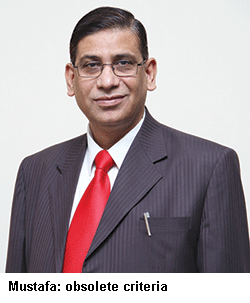 culture, a string of insufficiently experienced VCs without adequate knowledge of global trends and innovations in higher education, have presided over academic business as usual.
culture, a string of insufficiently experienced VCs without adequate knowledge of global trends and innovations in higher education, have presided over academic business as usual.
In the Western world, VCs are selected by university academics themselves, for a period of 10-15 years. Every university has its distinctive identity and its own set of peculiar problems. So ideally, their board of governors should shortlist, interview and appoint experienced individuals suited to lead them. For instance, when Oxford University was reeling under a severe funds crunch in recent years, they appointed a businessman, an individual who had the experience and capability to raise resources for the institution, as VC. In India, it’s commonplace for the Central and state governments to appoint vice chancellors whose qualifications conform with obsolete criteria specified by the University Grants Commission. While public advertising inviting applications for the post might serve the cause of transparency, hundreds of applications are received from all and sundry, making the task of search committees very difficult. Instead, university bodies such as the syndicate and academic council should select and invite experienced individuals with the skill-sets to solve its problems of the time,” suggests Prof. Faizan Mustafa, a law postgraduate of Aligarh Muslim University and currently the vice chancellor of the NALSAR University of Law, Hyderabad, routinely ranked among the country’s Top 5 law schools.
As the representative university of Bangalore, which since the dawn of the millennium has acquired a national and indeed global reputation as India’s premier new-age ICT (information and communication technologies) hub, BU quite clearly has to improve its reputation and ranking in national league tables and the international WURs (World University Rankings) published annually by the London-based QS and Times Higher Education. It’s an egregious anomaly that BU is ranked a lowly #245 in the QS Asia University Rankings 2017.
As outlined above, upgradation, reform and revival of this 54-year-old un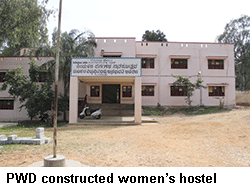 iversity isn’t impossible. Yet, the pre-condition of the resurrection of BU is that the institution’s laid-back academics and faculty shed their complacency and make determined and concerted efforts to reduce its overdependence on the state government and snatch back its administrative and academic autonomy. The trifurcation of Bangalore University, which reduces the number of affiliated colleges of BU to 255, has decreased its administrative and examination workload.
iversity isn’t impossible. Yet, the pre-condition of the resurrection of BU is that the institution’s laid-back academics and faculty shed their complacency and make determined and concerted efforts to reduce its overdependence on the state government and snatch back its administrative and academic autonomy. The trifurcation of Bangalore University, which reduces the number of affiliated colleges of BU to 255, has decreased its administrative and examination workload.
This initiative has provided BU a new opportunity to focus on modernising teaching and research and improving the administration of this 54-year-old university which has the potential to re-invent itself and recover its lost reputation.
|
Abridged history of BU
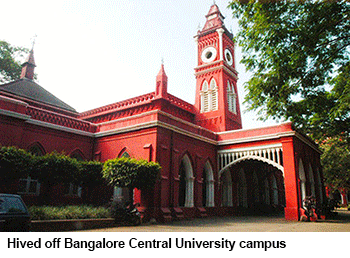 Bangalore University (BU, estb.1964) is a state government funded varsity hived off from Mysore University 54 years ago, to cater to the higher ed needs of Bangalore city and neighbouring districts of Bangalore rural, Kolar and Tumkur, with the latter spun off as separate state government universities — Bangalore North University in 2015 and Tumkur University in 2004. Initially the two premier colleges of BU were the Central College and University Visvesvaraya College of Engineering (UVCE). But recently Central College became the nucleus of Bangalore Central University (estb.2015). However UVCE — a top-ranked engineering college of the state — remains the crown jewel of BU. Bangalore University (BU, estb.1964) is a state government funded varsity hived off from Mysore University 54 years ago, to cater to the higher ed needs of Bangalore city and neighbouring districts of Bangalore rural, Kolar and Tumkur, with the latter spun off as separate state government universities — Bangalore North University in 2015 and Tumkur University in 2004. Initially the two premier colleges of BU were the Central College and University Visvesvaraya College of Engineering (UVCE). But recently Central College became the nucleus of Bangalore Central University (estb.2015). However UVCE — a top-ranked engineering college of the state — remains the crown jewel of BU.
In 1973, following unexpected largesse from the state government, BU moved to its 1,100 acre sprawling Jnana Bharati campus, where affiliated colleges — the University Law College (estb.1948) and College of Physical Education (estb.1959) are also sited.
Through the 1970s BU acquired an excellent national reputation for its high-quality undergrad degree programmes in botany, chemistry, economics, English, geology and maths. Alumni who graduated in those golden years include Kiran Mazumdar Shaw, founder, Biocon and pioneer of the biotechnology industry in India; T.V. Mohandas Pai, former director of Infosys and chairman of Manipal Global Education; Nirupama Rao, Indian Foreign Service officer; K.R. Srinivasan, dean of engineering, New York University; Mandyam Veerambudi Srinivasan, biologist and recipient of Prime Minister’s Prize for Science, Australia; Rahul Dravid, cricketer; and Lakshmi Narayan, former CEO, Cognizant.
However, after the liberalisation and deregulation of the Indian economy in 1991, a large number of private engineering colleges — often promoted by discredited politicians and shady businessmen — began sprouting in Karnataka and were readily granted affiliation by BU. This also prompted increasing government interference and dilution of the varsity’s autonomy.
Moreover, during the past five decades, BU grew into one of South Asia’s largest universities with 48 postgraduate departments, one postgraduate centre at Kolar, four university colleges, 684 affiliated colleges and several other centres and directorates of higher learning and research, educating 350,000 students.
In May 2015, BU was trifurcated into Bangalore North University, Bangalore Central University (the former Central College) and Bangalore University with the latter’s headquarters at the Jnana Bharati campus. With the former BU’s 684 affiliated colleges distributed among new universities, currently BU has 255 affiliated colleges.
However, incremental political interference from successive state governments which froze tuition fees at absurdly low levels (see box p.76) and imposition of a succession of less than qualified vice chancellors on BU — the varsity has experienced eight vice chancellors after 2006 — has resulted in the university’s public reputation suffering a steep decline. In the WURs (World University Rankings) of the London-based Quacquarelli Symonds (QS), BU is ranked #245 in Asia and #148 among BRICS.
Worse, it’s not included in the Top 100 universities ranked by the Union HRD ministry’s National Institutional Rankings Framework (NIRF).
|
“Cannot compare BU with private and foreign varsities”
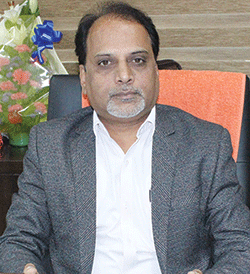 During the past 13 months, Bangalore University has been served by five pro-tem (‘in-charge’) vice chancellors with the varsity’s senior-most deans holding the post (since Dr. B. Thimme Gowda completed his term in February 2017), because the Karnataka government and state governor Vajubhai Rudabhai Vala — an appointee of the Central government and ex officio chancellor of BU — haven’t been able to agree on the most suitable candidate from among names shortlisted by the varsity’s search committee.
During the past 13 months, Bangalore University has been served by five pro-tem (‘in-charge’) vice chancellors with the varsity’s senior-most deans holding the post (since Dr. B. Thimme Gowda completed his term in February 2017), because the Karnataka government and state governor Vajubhai Rudabhai Vala — an appointee of the Central government and ex officio chancellor of BU — haven’t been able to agree on the most suitable candidate from among names shortlisted by the varsity’s search committee.
When your correspondent began writing this feature in December end Dr. H.N. Ramesh, professor of civil engineering of the affiliated University Visvesvaraya College of Engineering, was pro tem VC of BU (July-December, 2017. He was succeeded by Dr. Sudesh V, dean of the affiliated University Law College. Excerpts from an interview with Sudesh V:
Although Bangalore University enjoyed a nationwide reputation for academic excellence in the 1970s, it has experienced steady decline. Today, it is ranked a modest #245 in the QS Asia Rankings — way below many universities of China, South Korea and Singapore. Nor is it ranked among India’s Top 100 in the Central government’s NIRF 2017. What are the major factors behind BU’s steady decline in public esteem?
In the period 1970-90, BU was the sole public university serving Bangalore urban and rural. However, after liberalisation several privately funded universities have been established. It’s important to note these private varsities don’t have social justice and inclusive education commitments of BU. A publicly funded university which serves large sections of the urban and rural poor cannot be compared with private and foreign universities. Nevertheless, we have been ranked #15 among the country’s top multi-disciplinary universities by The Week’s Hansa Research Survey 2016. We have also been consistently awarded ‘A’ grade rating by NAAC.
Recently BU, which was perceived to have grown too large and unwieldy, was trifurcated. What are the expected benefits of trifurcation?
This is a welcome development as all the colleges affiliated with the erstwhile BU will be better administered. Moreover, we will now be able to more effectively concentrate on delivering services on time and encourage faculty to undertake research activities since their work of administering and inspecting affiliated colleges will be reduced.
According to mainstream media reports, the state government’s annual budgetary allocation for the pre-trifurcated BU has been static for several years. What are your main sources of funds and how do you propose to increase the university’s income?
The salary grant from the government is Rs.155.92 crore. Admission, tuition, exam and affiliation fees from colleges is the next major source, aggregating Rs.148.93 crore. This amount will reduce by 30 percent from next year with completion of the trifurcation process. Research income and UGC grants aggregate to Rs.128.2 crore. Now that our administrative load has reduced, we intend to market our research capabilities and increase endowments income by reaching out to our strong alumni network.
Looking ahead, what are your plans for reviving and restoring Bangalore University to its former glory as one of the country’s Top 10 universities?
Digitisation of teaching, learning and research is high on our agenda. We need to explore ways and means to increase technology usage in classrooms. Moreover, we need to increase usage of new digital technologies in administration to improve efficiency and reduce expenditure.